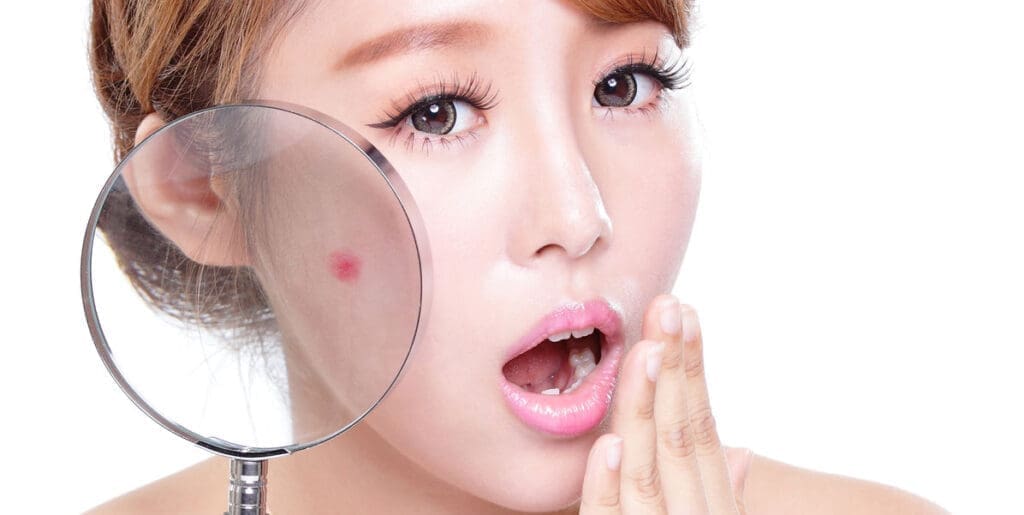Acne can be classified into two main types: non-inflammatory and inflammatory. Each type has specific symptoms, treatment goals, common medications, side effects, and daily care routines. Here is a detailed guide to help you understand and manage acne effectively.
Non-Inflammatory Acne
| Symptoms | Treatment Goals | Common Medications | Side Effects | Daily Care |
|---|---|---|---|---|
| Closed comedones (whiteheads) and open comedones (blackheads) | Normalize the keratinization process to prevent follicle blockage by old, thickened keratin. | Topical retinoids (A acid), azelaic acid, benzoyl peroxide creams, gels, or solutions. | Mild redness, dryness, and irritation, usually temporary. | Use medical-grade skincare products containing gentle exfoliating ingredients as daily care or adjunctive therapy. Consult a qualified dermatologist. Use lightweight moisturizers to alleviate dryness. |
Inflammatory Acne
| Symptoms | Treatment Goals | Common Medications | Side Effects | Daily Care |
|---|---|---|---|---|
| Papules, pustules, nodules, cysts | Reduce sebaceous gland activity and decrease bacteria and inflammation in follicles. | Mild to moderate inflammatory acne: Topical antibiotics, combined with topical retinoids or azelaic acid. Severe inflammatory acne: Oral antibiotics, combined with topical retinoids or monotherapy with oral retinoids or hormonal medications. | Redness, dryness, peeling, and irritation. Antibiotics and oral retinoids increase skin sensitivity to UV rays. Oral retinoids cause skin dryness, peeling, and cracked lips. | Use medical-grade skincare products with antibacterial ingredients. Combine with medication to enhance efficacy and reduce side effects. Consult a qualified dermatologist. Use lightweight moisturizers or lip balm to improve dryness. |
Detailed Acne Care Tips
Non-Inflammatory Acne
- Daily Skincare: Choose medical-grade products with gentle exfoliating ingredients to assist with the keratinization process. This can be part of your daily routine or used in conjunction with prescribed treatments.
- Moisturizing: Utilize lightweight moisturizers to combat dryness caused by acne medications.
Inflammatory Acne
- Daily Skincare: Opt for products with antibacterial properties to support medication effects and mitigate side effects. Always seek advice from a dermatologist.
- Moisturizing: Use light moisturizers or lip balm to address dryness and cracking caused by treatments.
Consult a Dermatologist
For personalized advice and treatment plans, always consult a qualified dermatologist. They can help determine the best approach based on your specific acne type and severity, ensuring you receive the most effective care.
By understanding the symptoms, treatment goals, common medications, and daily care routines for both non-inflammatory and inflammatory acne, you can manage and treat acne more effectively, promoting healthier skin.

